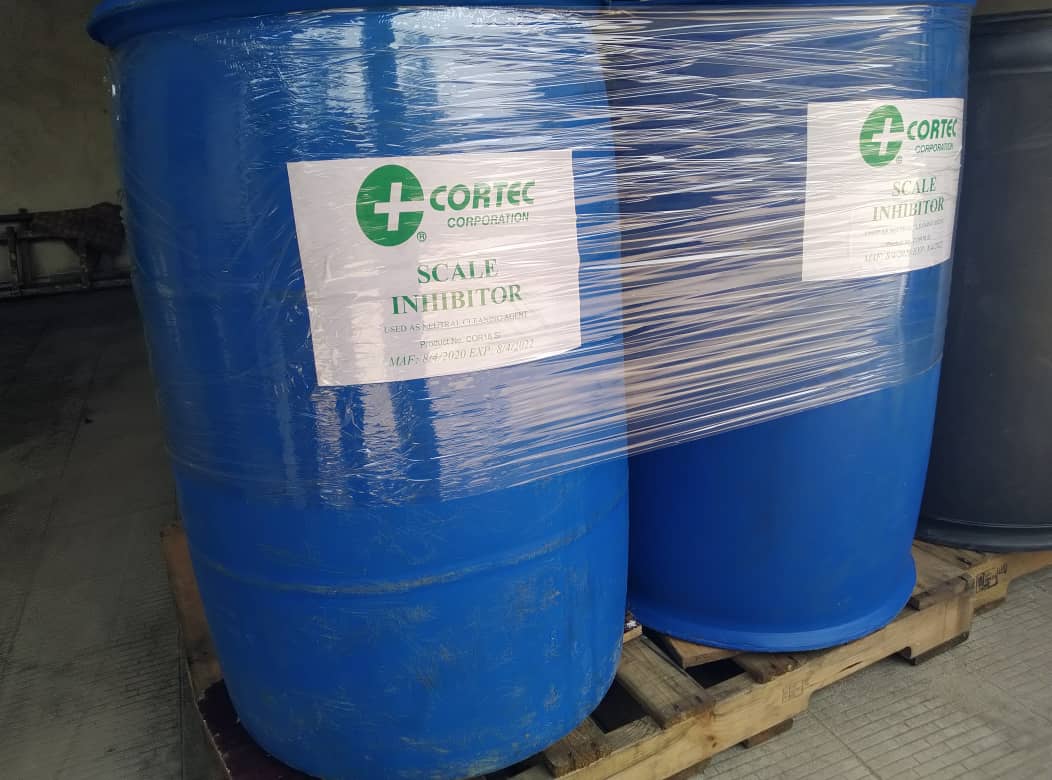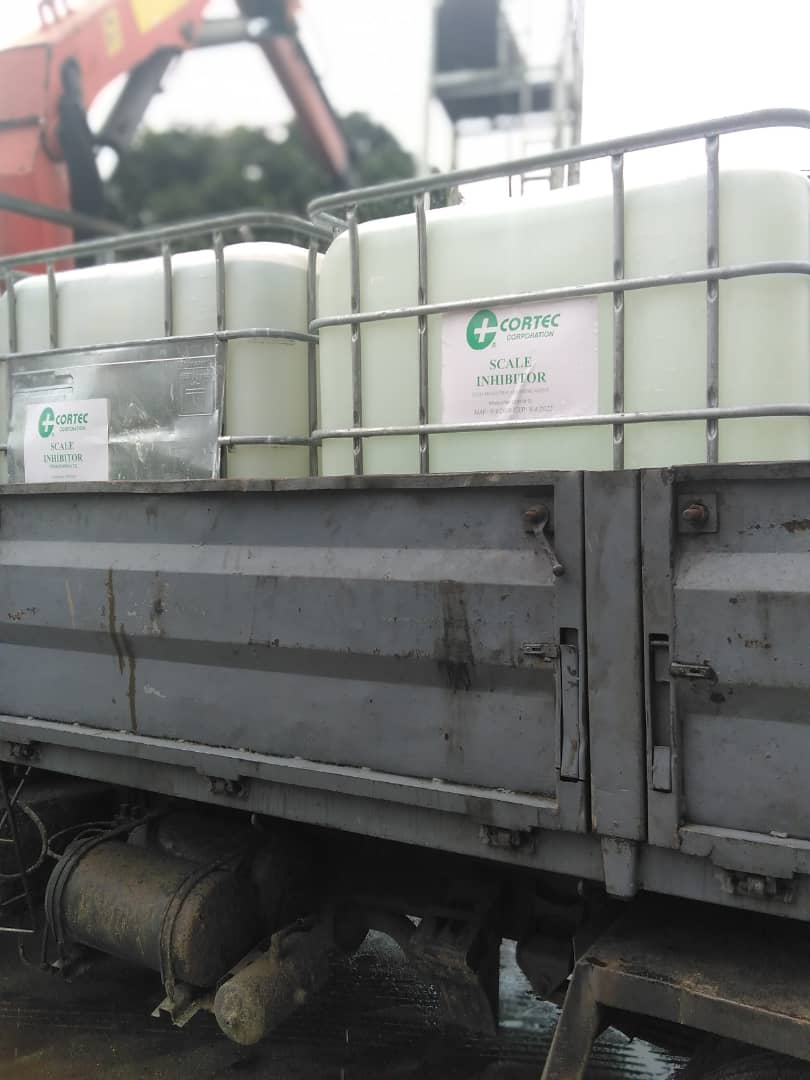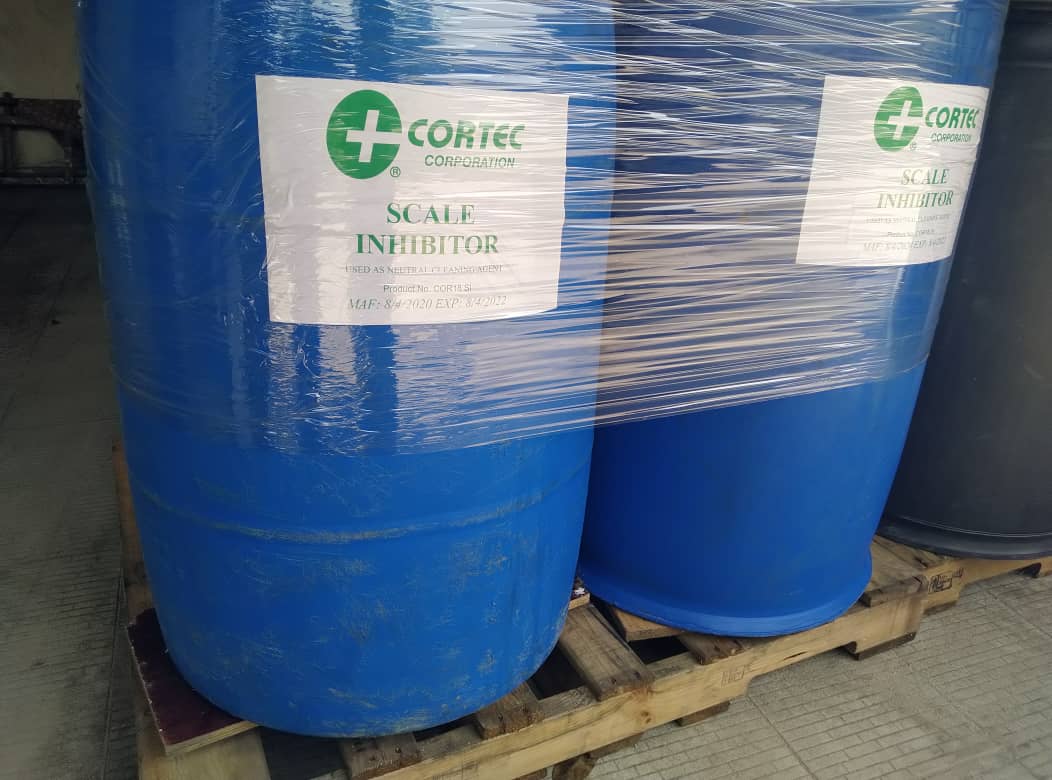Phosphonate scale inhibitors are used to achieve downhole mineral scale prevention in oilfields through squeeze treatments which are usually the most frequently applied methods for preventing the formation of sulphate and carbonate scales in producer wells.
Two types of phosphonate scale inhibitor squeeze treatment can be carried out where the inhibitor retention mechanism in the reservoir is due to adsorption of the inhibitor onto the rock mineral substrates and precipitation or phase separation of an inhibitor complex.
The idea in a precipitation process is to extend the squeeze lifetime. Precipitation is generally included by adjusting the solution chemistry [Ca2+], PH, temperature] such that an insoluble or partially insoluble inhibitor complex is formed. For example, this is often an inhibitor/calcium complex.
Phosphonate scale inhibitor have always been proposed for effective and efficient precipitation treatment by oil producing companies.



